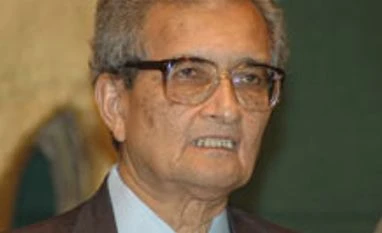He pointed out that there are powerful lobbies for diesel and LPG subsidies, and even for exemptions of custom duties on gold imports. However, nobody is lobbying for children’s rights. Neglecting children is not only unjust but also an economic blunder, he said.
According the economics professor at Harvard University, the politics of food and other subsidies is causing “massive imbalances” in India’s spending priorities. Sen was speaking at a panel discussion on ‘Hunger and Nutrition: Time to Act’ at the Indian Institute of Technology, Delhi. Recent Supreme Court orders on mid-day meals and the Integrated Child Development Services Schemes have contributed to the cause of health and nutrition of children. It is important to see that the Bill not dilute these entitlements in any way, he said.
Speaking on the occasion, Planning Commission Deputy Chairman Montek Singh Ahluwalia said that the government was committed to Public Distribution System. As for the cost, he said that it might call for a reduction of other expenditure.
Shanta Sinha, chairperson of the National Commission for the Protection of Child Rights who took part in the discussion criticised the Bill for giving children a raw deal. The word “anganwadi”, she pointed out, is not even mentioned in the revised version of the Bill.
Dr Reetika Khera chaired the discussion on behalf of the Department of Humanities and Social Sciences.
)